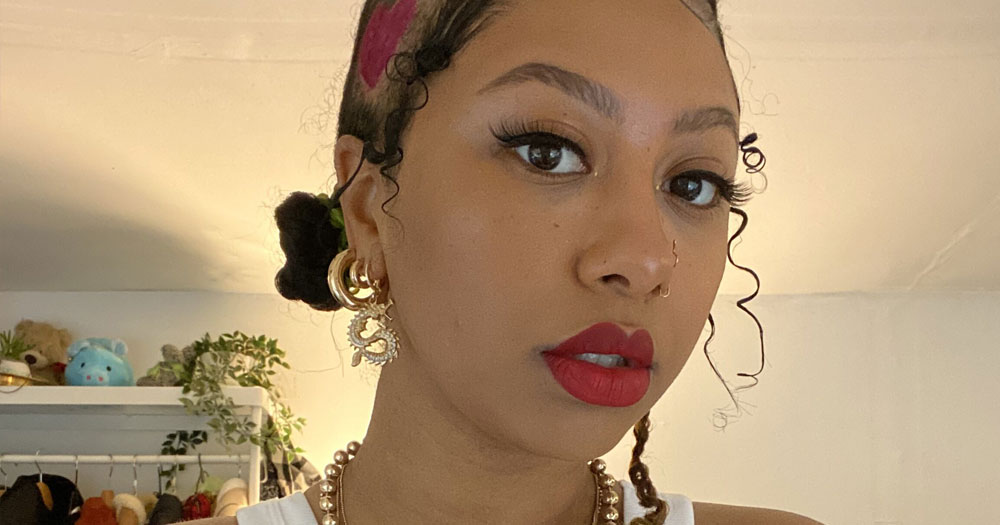When I think about pronouns I can’t help but think about all the vast identities we’ve missed along the way, mourn the people that perhaps didn’t get the chance to express themselves in a way that honours their personhood.
With that being said…
Let me bring you back a couple of years now, it’s 2017 and a young Miano is questioning their life, sexuality and just having your usual early mid-twenties existential crisis.
I’d just started the beginnings of what is now Origins Eile and I won’t lie – ’twas a MASSIVE year for me. Starting to unlearn all the internalised ‘isms’ that were petrifying my soul and holding me back from standing in my wholeness. Fast forward to 2019 now and I really hoped that I figured out all I could about myself. But then gender came and threw that steadiness I had now established internally into total chaos and flux. FUN.
Tie that in with my independent teachings of colonialism and all the destructiveness and unfortunately too, effectiveness it’s had on suppressing Queerness as we understand it within an African (or in my case specifically Kenyan context) and you’re left with only short sticks of historical reference of ancestral Queer lineage. That’s not to deny or say it didn’t exist. But fuck me it’s really difficult to research. Whole archives, stories lost.
Did you know many African languages are v. ungendered? Swahili is a Bantu language spoken in many parts of Africa.
The words he, him, she, her translate to a single word in Swahili, ‘yeye’.
The vast majority of the words do not distinguish between male or female.
Also, seems that respect for people’s age is more important than gendering someone in Yoruba – words like ‘brother’, ‘sister’, ‘son’ and ‘daughter’ also do not exist. Instead, the most important organising category is age. Therefore, people are classified by whether they are égbǫn (older sibling) or aburo (younger sibling). In order to say brother, one would need to say “aburo mi okunrin” (this roughly translates to “my younger sibling, the male”).
Due to European colonisation, western pronouns are becoming more widespread.
But why? Ugh.
So you see my attempts at decolonising my body, mind and spirit have not been a smooth one. I’m a Virgo ok, I do be needing logic and reason to better understand how TF we’ve ended up where we’ve ended up. Yes, I know it’s not always the best mode of enlightenment but damn it works for me, haha. Now in 2021, I can say I’ve temporarily landed on the pronouns they/them.
Temporary because this – we are constantly learning and as language expands and fluctuates why would I solidify anything? If the panini press has taught us anything it’s that we as a society have to be durable, versatile and amenable.
Being non-binary is not just about me decolonising my body and spirit. It’s an act of rebellion. It’s a reclamation of everything colonisation has stripped my heritage of.
My journey has just begun really. My wish for all Black people this International Pronouns Day is this: I hope we all give ourselves the space to/and create an environment in which we can thrive and fully explore gender and all the ways it can be played with.
Midweek slump? Got 30 mins and you’re trying to make it through that last leg of the day? Here’s a lil’ playlist from THEE non-binary finary.
An essential reading list full of Black and Brown Queer theory here:
European Others, Queering Ethnicity in postnational europe Fatima El- Tayeb
Black Girl Dangerous on Race, Queerness, Class and Gender Mia Mc Kenzie
Let’s remember that homophobia is an export, there is nothing culturally to back this in African histories. Happy International Pronouns Day.
You can find Renn on Instagram, @nonbinaryicon
© 2021 GCN (Gay Community News). All rights reserved.
Support GCN
GCN is a free, vital resource for Ireland’s LGBTQ+ community since 1988.
GCN is a trading name of National LGBT Federation CLG, a registered charity - Charity Number: 20034580.
GCN relies on the generous support of the community and allies to sustain the crucial work that we do. Producing GCN is costly, and, in an industry which has been hugely impacted by rising costs, we need your support to help sustain and grow this vital resource.
Supporting GCN for as little as €1.99 per month will help us continue our work as Ireland’s free, independent LGBTQ+ media.

comments. Please sign in to comment.